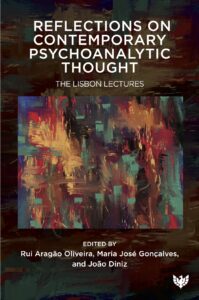
Rui Aragão Oliveira, Maria José Gonçalves, and João Seabra Diniz are full members and supervising analysts of the Portuguese Psychoanalytical Society (PPS) and International Psychoanalytical Association. They recently co-edited Reflections on Contemporary Psychoanalytic Thought: The Lisbon Lectures, a cutting-edge collection of psychoanalytic ideas that arose from lectures at the Portuguese Psychoanalytical Society. Here, the editors discuss why these contributions remain so significant to the field today.
Psychoanalysis is a recent creation. But it is a new knowledge, which brought a new understanding of the human experience, in the continuity of human experiences.
In individual life, as in collective life, this is a very important issue.
Because history is not just the past – it is the land where our roots are.
Men have always asked themselves what they did not understand from their profound experience, and left testimonies of that search.
Let us cite a dramatic complaint by the poet Luis de Camões, in his Canção IX. Bitterly referring to his “sad, laborious days filled with pain and anger”, after a long dramatic enumeration he adds: “and my thoughts, which are means to deceive nature itself.”
The psychoanalyst offers his client someone who listens to him. And someone who knows how to listen helps the other to know how to count.
The Lisbon Lectures book is finally available to readers for whom psychoanalysis is crucial for understanding the deep complexity of how human beings and institutions work and cultural knowledge evolves, in the contemporary psychoanalysis.
It was a very interesting challenge to choose, among the great variety and excellency of the contributions from so many and high valued psychoanalysts coming to our society, those that were most significant to put in perspective the way we work, individually and with the group inside our institutions.
Editing this set of texts was really a great pleasure, because after several years, the temporal distance allows us to relive the historical context in which they took place, as well as their consequent impact. It favours a new look at reading the texts, emphasizing that some appear for the first time written, and thus available to the general public.
Reflections on Contemporary Psychoanalytic Thought: The Lisbon Lectures is available from our website now.
